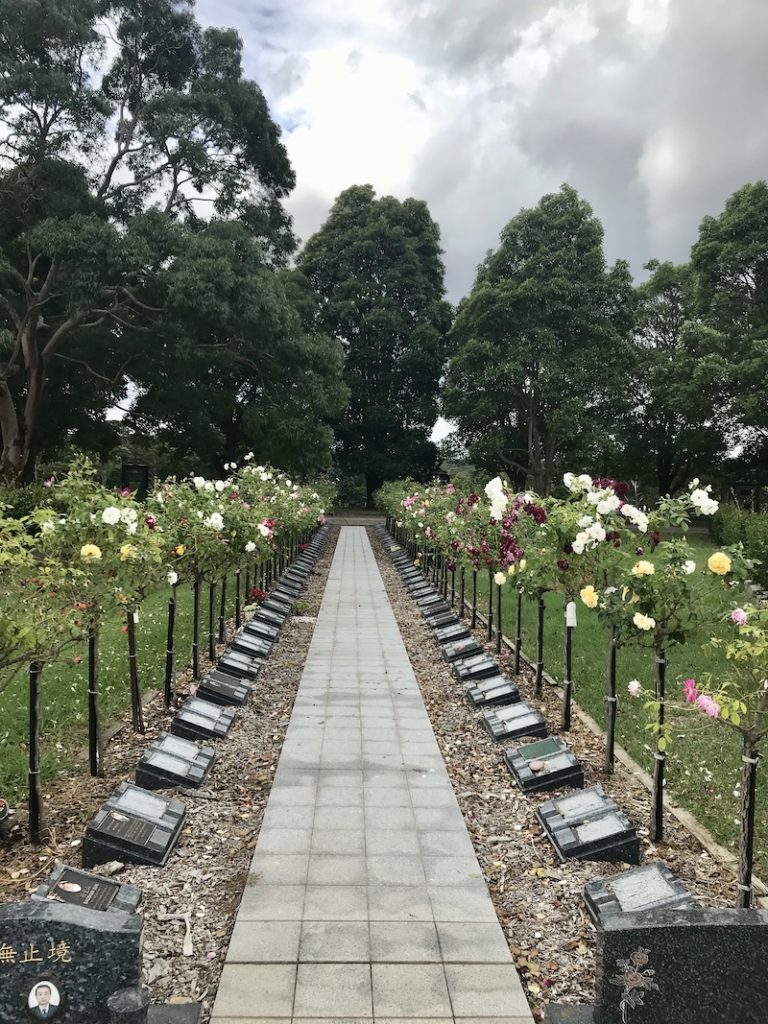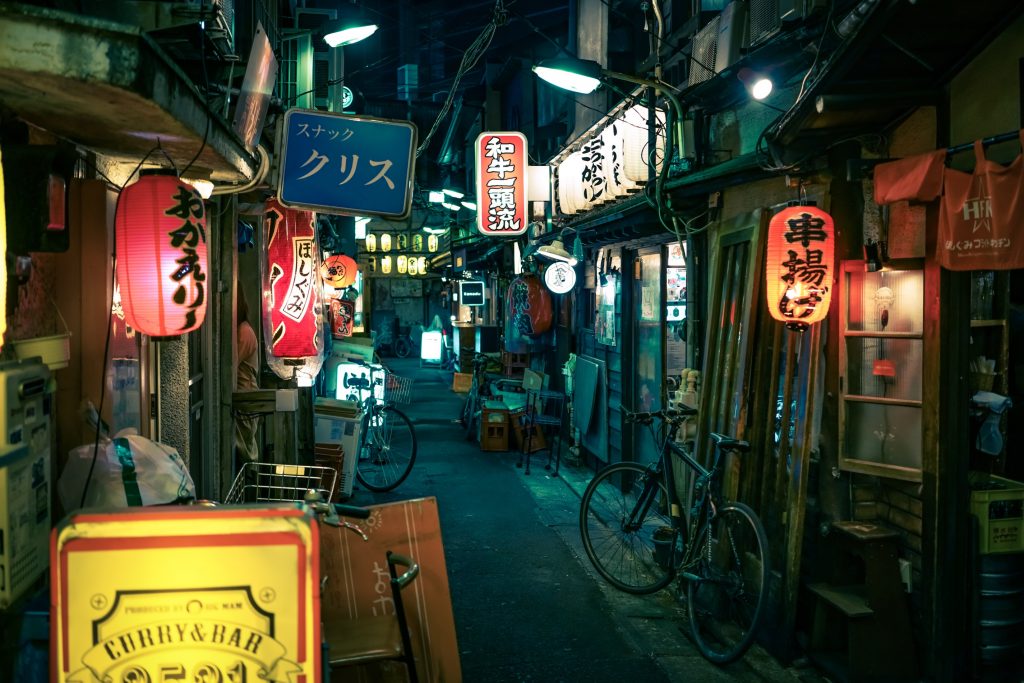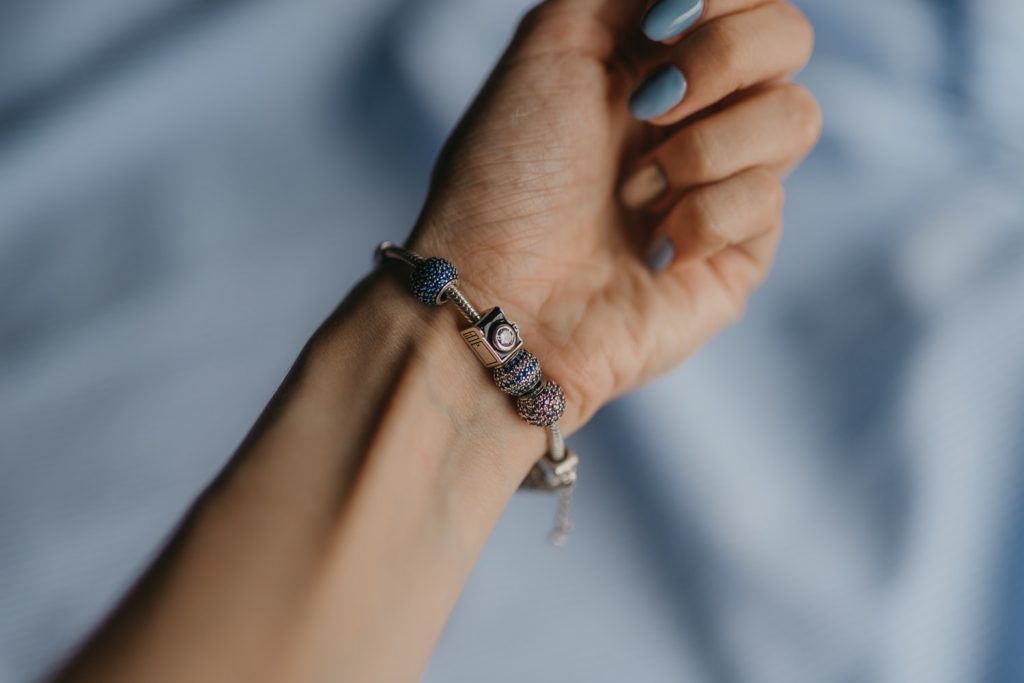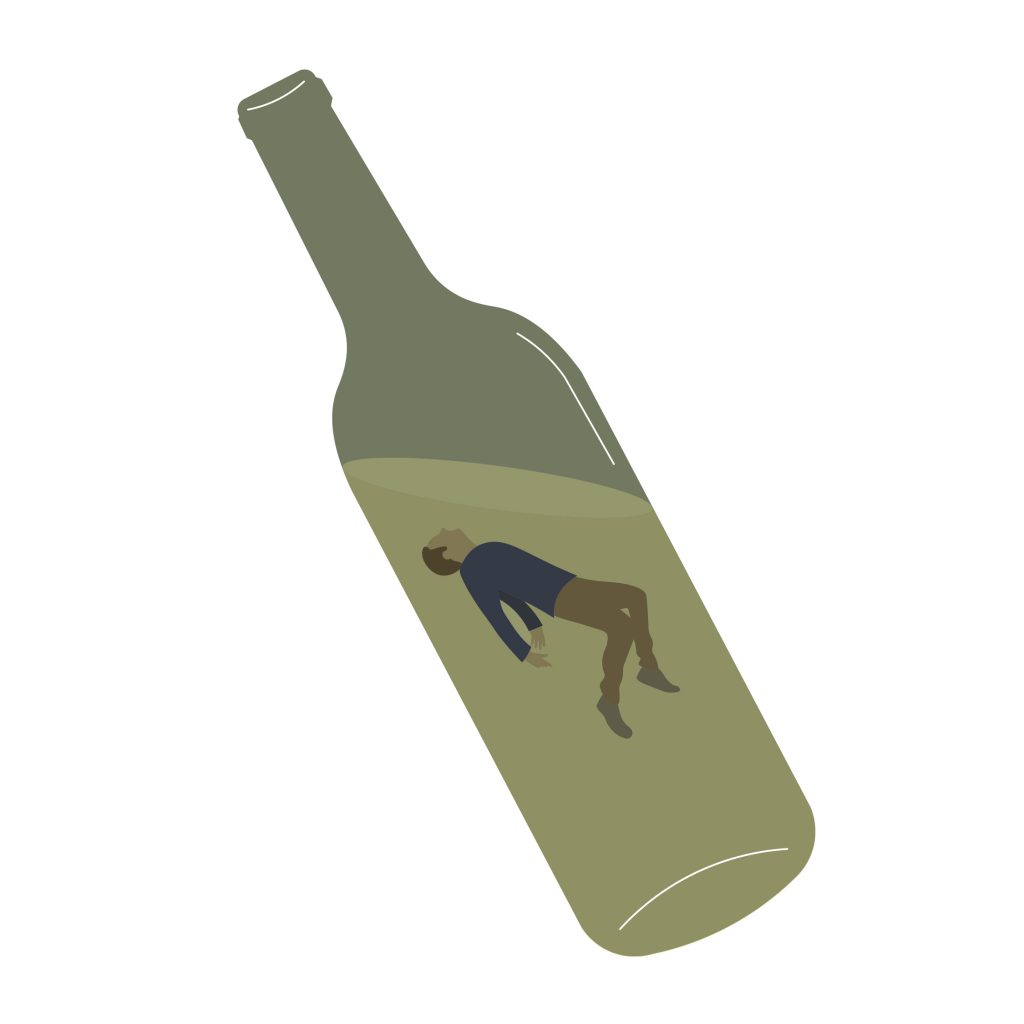
A Bed of Roses was awarded 3rd place in The Quarry – Future Leaders Creative Writing Prize 2020
Nestled among the flowering hedges within the grounds of a Sydney cemetery, is baby Primrose. She rests underneath a canopy of white roses, a ceramic mushroom house and a fairy figurine placed next to her grave. The morning breeze scatters petals across the Baby Garden, wind chimes drowning out the hum of the adjacent highway. Next to Primrose is 10-day-old Kenzo. A sun-bleached toy car leans against his plaque, the granite surface adorned with a rose motif. These plaques are two of the many sprawling across the cemetery’s gardens.
Attending to the grounds and its 3500 roses is Horticulturist John*. With his khaki uniform and work boots caked in mud, John stomps over to the cemetery’s Magnolia Chapel, greeting me with a humble ‘G’day.’ ‘Today is actually a weird day because we have eleven babies being cremated,’ he yells over the piano melody spilling out of the chapel’s service doors. ‘Florist will be busy.’
Playing tour guide, John is to show me the grounds via his company truck, the cemetery’s logo imprinted on the side door that he has opened for me. While buckling our seatbelts and speeding away, John says his goal is to re-design sections of the crematorium into botanical sanctuaries. ‘The Garden of Eternity looks like a skate park. Idiots,’ he grumbles. Through the windscreen, the grey slab of concrete plaques can be seen, desolate of any foliage. Yet the nearby Rose Garden is no skate park. Stepping out of the truck, the sickly-sweet scent of a thousand roses overwhelms as we draw nearer. ‘The standard is to just chuck roses in wherever because that’s the traditional thing,’ John says, sweeping away the ground’s decayed leaf litter with the side of his boot. Flowering buds of white, fuscia and yellow occupy the site, along with dozens of glossy marble headstones.
For centuries humans have found comfort in flowers. Next to each headstone in the 19th Century, white roses were planted, a black ribbon tied to its stem. The black ribbon may have been left behind in the pages of history, but our appreciation for the rose has carried on. With bushy eyebrows raised, John reveals that gravesites near flowers sell quicker. ‘If the gardens around it look nice, you can ask for more money,’ he chuckles in his ocker twang, a grin spreading across his tan face. Still in the Rose Garden, John tends to one of the memorial site’s rose bushes, the tips of the leaves shrivelled and brown. Susceptible to black spot and aphids, roses are temperamental, needing to be trimmed around the clock, not to mention their sharp thorns. He notes that complaints have been lodged recently as a result of the dying flowers. ‘Water restrictions have made it really difficult. Each person you imagine would think their loved ones’ gravesite should have priority or get personal attention, but unfortunately, it’s just not possible,’ he sighs.
With the clouds looking sombre, we decide to retreat to the truck. John’s shoes squelch in the manicured grass sodden from the previous night’s storm. Driving through the grounds, there are no visitors to be seen. Pointing this out to John, he shrugs that he too doesn’t come across many people. ‘What I do notice on Monday mornings is lots of fresh flowers.’ From the car window, he points out a bouquet placed on the edge of one grave over the weekend. ‘I may not see the visitors, but I know they are there all the time.’
Our conversation is interrupted by a horn beeping furiously. Groaning, John pulls the truck off to the side of the road, letting the car behind zoom ahead. With his blue eyes narrowed, John swears under his breath. ‘That’s some arsehole funeral director there. He’s probably running late to a burial.’ Exhaling, he stretches while running his hands through his dark crew cut. Soon after, a pickup wagon hurtles down the hill toward the route of the funeral director. The vehicle’s tray is filled with excavator equipment, and John smirks, knowing his assumption of a late burial is correct. ‘Once the coffin has been lowered, they compact the dirt and wait a few days for it to settle. It often drops after rainfall and needs refilling again,’ he says, parking the vehicle next to the entrance of the Baby Garden.
In this memorial section, ornaments are scattered around the various plaques, a toy aeroplane slumped against the trunk of one rose bush. Standing in the centre is a stone sculpture of a mother and child embracing. With a lopsided frown, John says, ‘when there’s a child and a parent grave you know something violent has obviously gone on there.’ The speckled pink windmill wedged into one of the garden beds spins feverishly in the chilly air. ‘I try to disassociate myself from it,’ he says with a shiver and shake of the head, as we take one last look at the dual gravesite. On the outskirts of the Baby Garden, two plants immediately grab our attention. One bush has been hedged into the shape of an elephant, but the other animal is unclear. ‘It is supposed to be an emu but looks like a duck. Probably better off having it as a duck I reckon,’ John snorts while inspecting the beak of the emu. Walking among the rows of infant headstones, the sweet aroma of flowering shrubs carries through the air. Engraved in between each of these plaques is the emblem of the rose – its petals, thin stem and thorns etched delicately under each name. With one last look at the Baby Garden, we head back to the truck to explore the grounds further.
Driving towards the Rose Chapel, I ask John about the reasoning behind its name. ‘It’s very traditional. They name the chapels after the certain flowers that surround its neighbouring garden.’ Slowing in speed, John notes that he and his team try not to drive by a chapel when a funeral is underway. Even amidst the pandemic, intimate services continue to take place at the cemetery. As we sit in the parked car, half-a-dozen mourners walk into the Rose Chapel, service music inviting them in rather than the usual hugs and shaking of hands. ‘As a team if we’re having a good day and share a laugh, we have to make sure we aren’t ‘too happy’ near a funeral. Making jokes and stuff isn’t cool. No leaf blowers that’s for sure!’
Near the chapel is the florist. ‘All the flowers around here are white, white, white,’ John notes. With white lilies and roses being the most common funeral flowers, the shop is abundant with white bouquets perched in silver display buckets. Seen as an emblem of spiritual love, the white rose has been given in circumstances of grief for over 12,000 years. Metres away from the florist is a magnificent ‘Teddy Bear’ Magnolia tree, its white petals open like a lotus. I ask John whether he prefers certain flowers over others. ‘That’s like asking a true horticulturalist what their favourite plant is. They shouldn’t be able to tell you because each one has its own use and beauty.’ When it comes to redesigning the gardens, roses will still play a role in the cemetery’s grounds according to John. ‘I’ll keep the monumental sections with roses, but I want to branch out, excuse the pun, and do something different,’ he tells, turning the truck’s engine back on.
Sweeping down the hillside is the Chinese Monumental section. The lawn is teeming with maroon granite headstones, each inscribed with gold Mandarin characters. ‘A normal grave here would be maybe $20,000 – $30,000 easy.’ John tells me that for many Chinese buyers of these gravesites, they do not like certain flowers. ‘Yellow is superstitious. No eucalyptus. They love gardenias,’ he lists. Driving past the Jewish section there is little planting to be seen, except for the freshly cut lawn. For Jewish burials, flowers are not as common. Instead, the placement of stones on a loved one’s graves is custom in Jewish culture, seen as a symbol of humility and respect. To them, these stones are their white rose.
Countless gums tower over the garden, some of the trees older than the deceased buried here. John is still taken aback by the fact that 20 to 30 bodies are buried here at the cemetery each day. It is a volume that is confronting. The cremation schedule and florist orders for today come to mind. Wandering down the trail, I ask John whether he would want to be buried somewhere like this. ‘You can put me anywhere I don’t give a shit. It’s up to my kids really, they can decide what they want. Maybe a staff discount would encourage me,’ he smirks. I notice a small sign requesting visitors bring fresh flowers in lieu of artificial varieties. ‘The natural appeal and beauty of our park’ is advertised as the reason for this request. ‘When you start to think about the 100,000s of graves all with fresh flowers that’s a lot,’ John says shaking his head at the thought of the price tag.
Arriving at the last leg of the morning’s tour, the rain has eased slightly. This memorial is lined with plaques. Some have tiny ceramic images of the deceased welded into the granite, others opting for engraved motifs of angels or single-stemmed flowers. Each of the graves here are privy to their own rose bush, a pastel canopy framing the lengthy pathway. Tiny nibbles in some of the petals can be seen up close. ‘There are caterpillars around a little bit,’ John sighs. He leans down, his face millimetres away from the shrub, picking off the wriggling pests one by one. Stepping back to admire his handiwork, he quietly examines the rose’s perfectly pruned petals, before continuing onto one of the cemetery’s countless other blooms.
*For privacy reasons, names have been changed.


